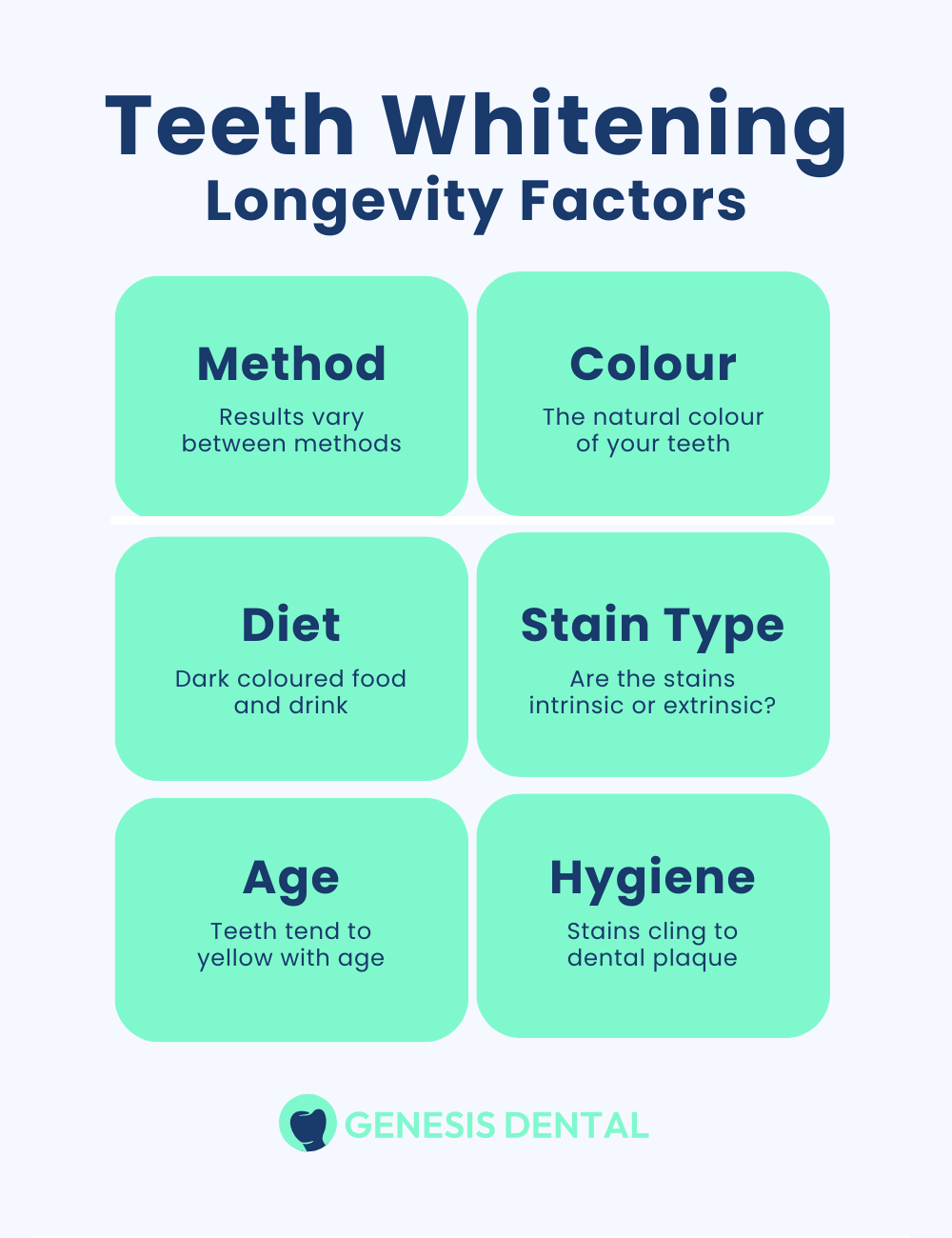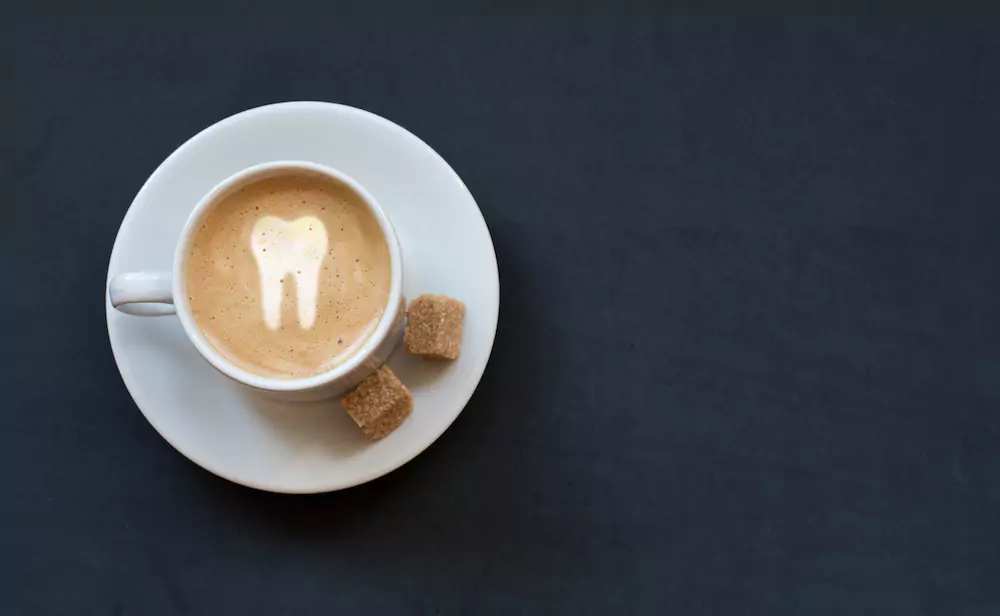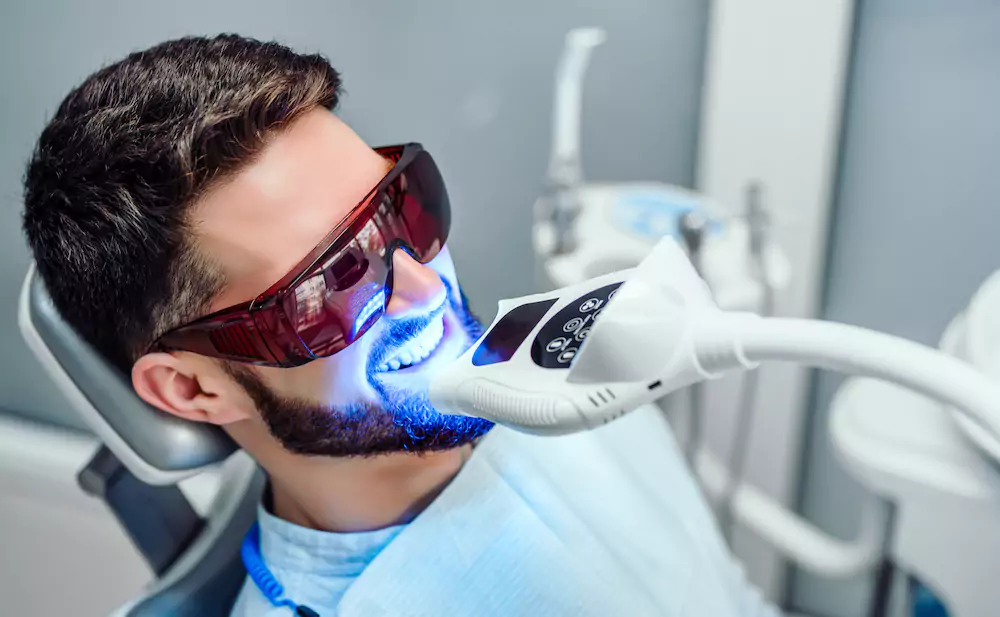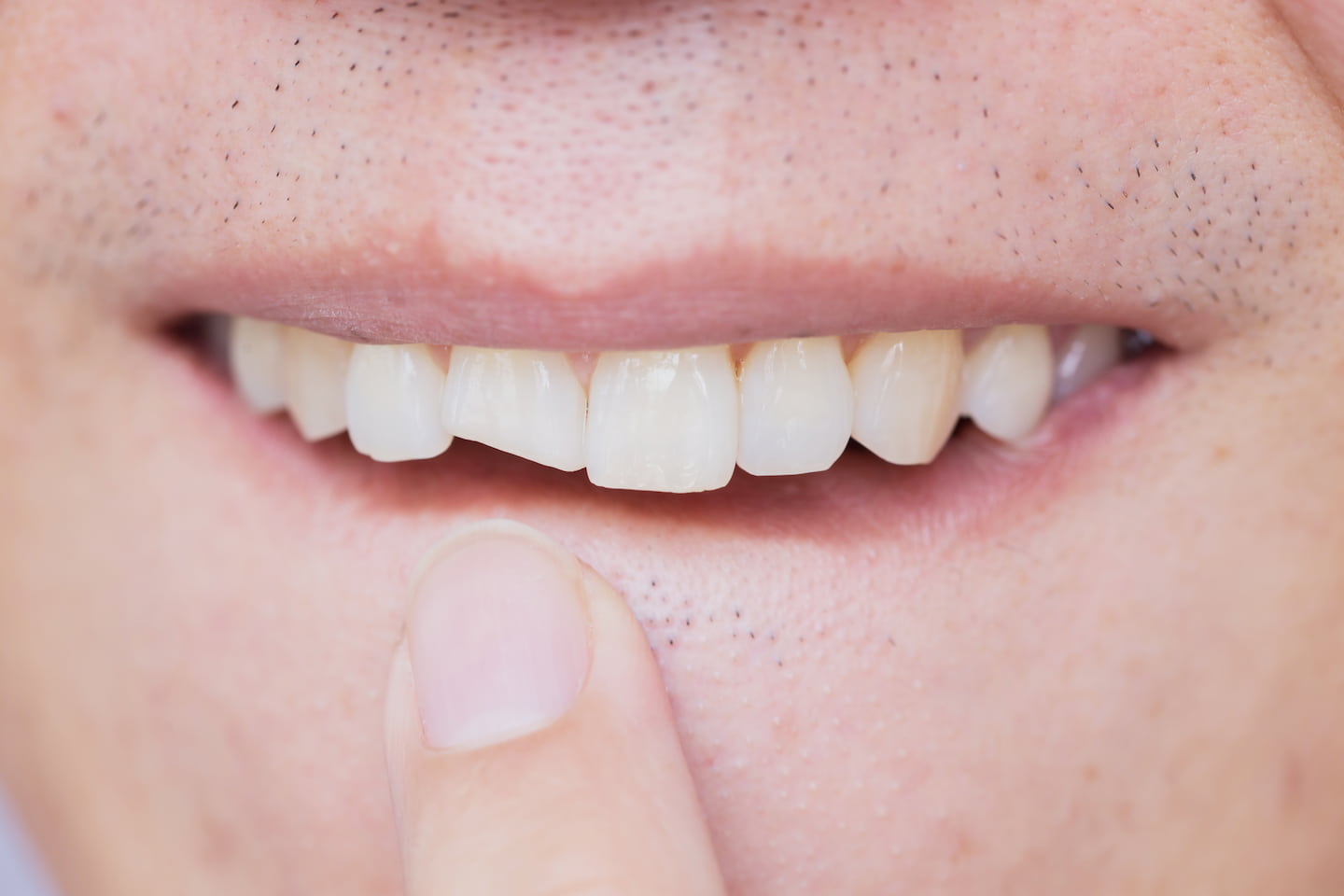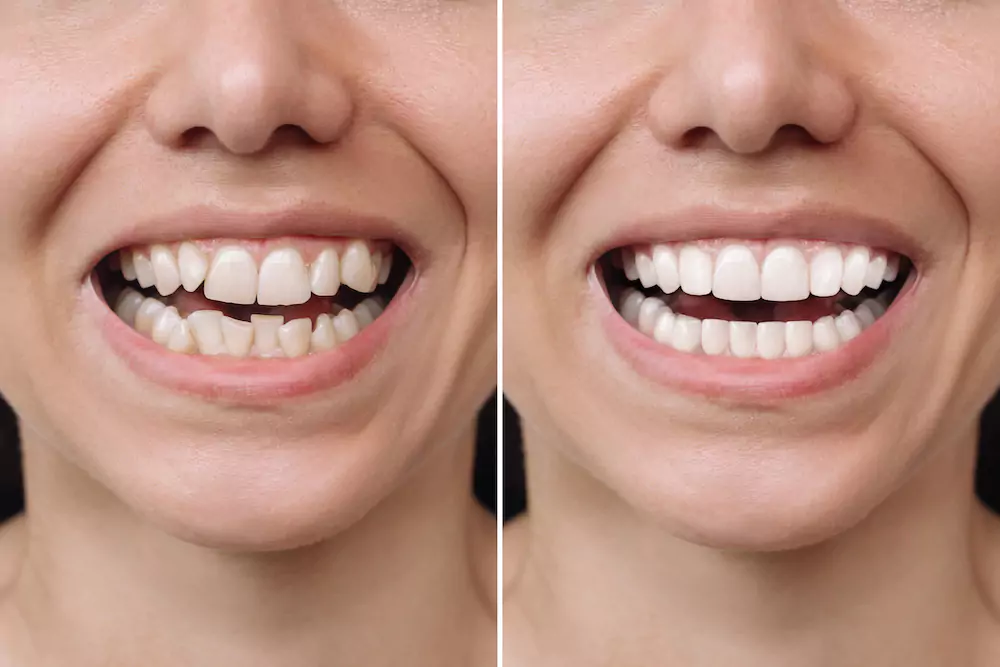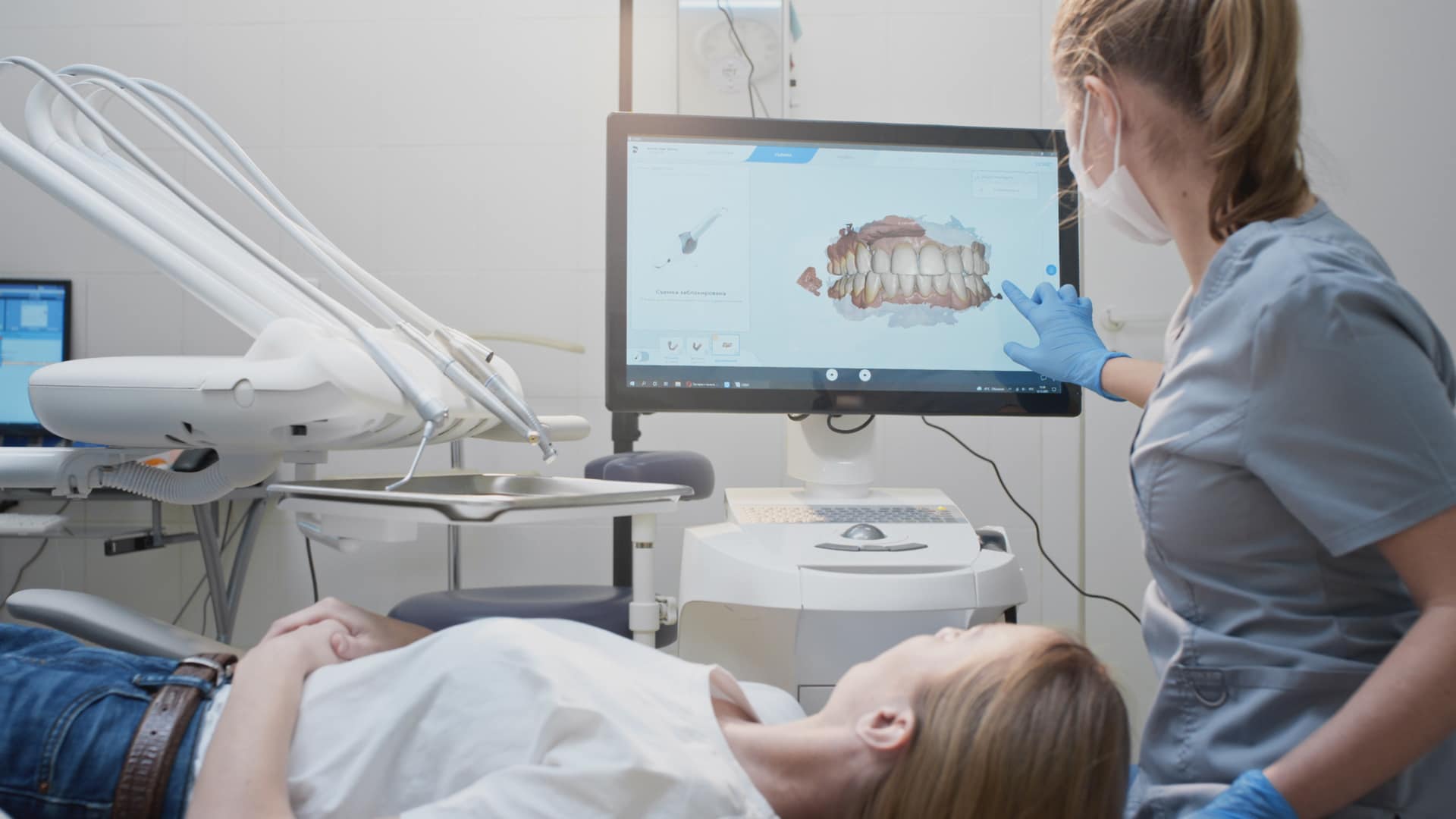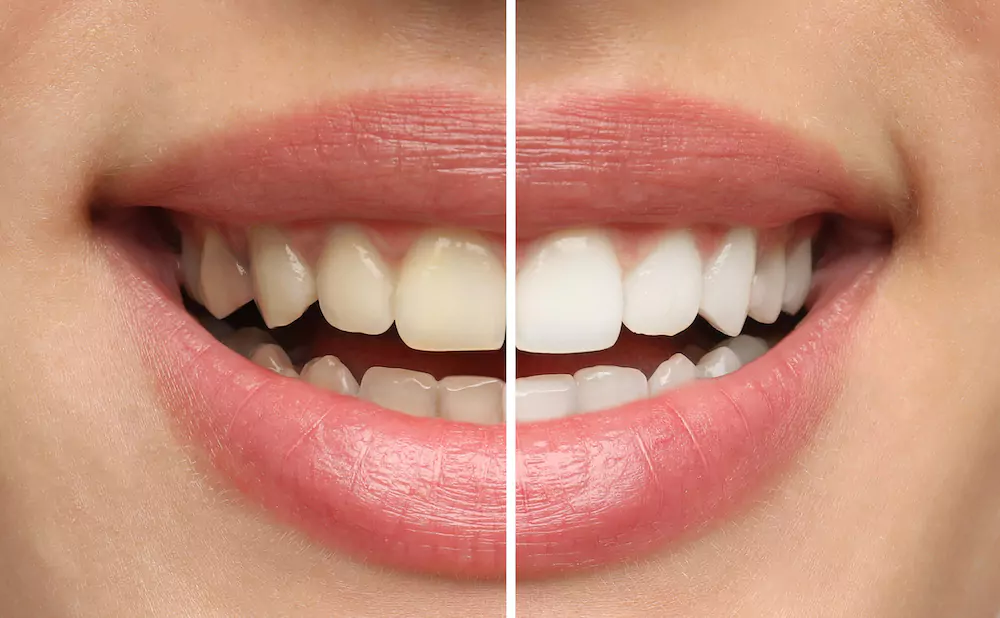
How Long Does Teeth Whitening Last?
Teeth whitening lasts anywhere from four weeks to two years depending on the method used.
Professional teeth whitening is the most popular cosmetic dental treatment I provide, which lasts between six months and three years depending on maintenance.
Learn everything you need to know about teeth whitening longevity factors in this blog.
In This Article
- Factors affecting whitening longevity
- Professional vs. DIY teeth whitening
- How to maintain teeth whitening results
- FAQs
Factors Affecting Whitening Longevity
Teeth whitening lasts anywhere from four weeks to three years depending on the method used.
1. The Whitening Method You Use
There are two categories of teeth whitening: over-the-counter methods and professional methods performed by your dentist.
Over-the-counter-whitening methods include options such as:
- Whitening gels
- Whitening toothpaste
- Whitening pens
- Whitening strips
If you opt for over-the-counter methods, your results will be less noticeable and won’t last as long as a professional treatment. It will also take a longer time to see results in the first place.
Professional whitening gels have a higher concentration of bleaching agents compared to DIY or at-home whitening kits. In-office whitening is also safer as it is supervised by your dentist.
With professional application and stronger bleaching agents, in-office whitening treatments will produce the most noticeable and longest-lasting results.
At Genesis Dental, I work closely with my patients to determine the whitening plan that will reveal their brightest smile while minimising their risk of tooth sensitivity. For patients who struggle with sensitivity issues, I can apply special desensitiser gel beforehand.
If you want the longest lasting results, I recommend professional in-chair teeth whitening combined with touch-up whitening treatments at home. I can help you determine the right whitening schedule that will maintain your smile without sensitivity or enamel damage.
2. The Natural Colour of Your Teeth
Your natural tooth colour also affects how long your results will last.
Individuals with more noticeable tooth staining will likely see the most dramatic results.
However, they may need another whitening treatment sooner than someone with naturally whiter teeth.
3. Your Diet
If you have a serious coffee habit, I don’t blame you! I love a good cup of coffee too. But if you frequently drink coffee, tea, or red wine, you’ll likely need a whitening touchup sooner.
Other dark coloured foods and beverages can cause your teeth to yellow sooner. Acidic foods can also cause tooth discolouration.
While I don’t recommend avoiding your favourite foods and drinks altogether, I do suggest being mindful of how frequently you consume them.
If you have concerns about how your diet may affect your results, I’d be happy to discuss the use of touch-up whitening treatments in between your professional visits.
If you want to maintain your results for as long as possible, pay attention to your consumption of:
- Red wine
- Coffee
- Dark colas
- Black tea
- Dark fruit juices
- Turmeric
- Dark chocolate
- Berries
- Bright coloured fruits
- Tomato sauces
- Soy sauce
4. The Type of Stains Treated
The level of staining and the type of tooth staining will affect how long your whitening results last.
There are two types of tooth stains:
- Intrinsic Stains — These internal stains often result from tooth trauma or certain medications. Intrinsic stains are harder to treat and often require professional whitening. Whitening results for intrinsic stains may require extra effort to maintain.
- Extrinsic Stains — Extrinsic stains affect the surface of teeth and usually result from consuming dark foods or beverages. External stains are easier to treat and usually respond very well to professional whitening treatments.
5. Your Age
As you age, you may notice your teeth naturally appear more yellow. This is due to the top layer of enamel starting to thin out with age.
As this top layer thins, the layer underneath (dentin) can show through more. Dentin is naturally yellowish in colour, leading to a smile that just isn’t as bright as it used to be.
The older you get, the more likely your results won’t last as long compared to when you were younger.
6. Your Oral Hygiene Routine
Proper oral hygiene is a crucial part of maintaining your overall health and keeping your smile bright and healthy.
Without proper oral hygiene, food debris can begin building up on teeth and causing plaque. Stains are more likely to cling to dental plaque, leading to discoloured teeth.
It is imperative to brush twice a day with a soft-bristled toothbrush and fluoride toothpaste, floss every day, and see your dentist for regular dental checkups. You can also ask us if an alcohol-free mouthwash would be a good addition to your oral hygiene routine.
You May Also Like: How Does Teeth Whitening Work?
Professional Teeth Whitening vs DIY Teeth Whitening
Professional teeth whitening is usually better than DIY kits because it works better, lasts longer, and is safer. Read the examples below to compare the two options.
Professional Teeth Whitening Example
Jack, a 35-year-old banker, chose professional teeth whitening at a dental clinic. The process, supervised by a dentist, took about an hour, ensuring safety and minimising risks like gum irritation or enamel damage. The immediate and striking results were achieved with a high concentration of bleaching agents, carefully applied to avoid harm. Jack received a special desensitiser gel to reduce sensitivity, a common concern in teeth whitening. The dentist’s guidance helped maintain the health of Jack’s teeth, with the effects lasting about two years.
DIY Teeth Whitening Example
Sarah, a 28-year-old graphic designer, used over-the-counter whitening strips for her DIY approach. The gradual results over a few weeks were less dramatic and posed a risk of uneven application, potentially leading to patchy results or gum irritation. The lower bleach concentration in DIY kits was safer for unsupervised use but less effective. Sarah had to repeat the treatment frequently, increasing the risk of overuse and potential damage to her enamel. Her experience lacked the professional oversight that could have provided a safer and more effective whitening process.
My Top Tips for Maintaining Teeth Whitening Results
I absolutely love performing in-chair teeth whitening sessions for my patients and seeing the instant gratification professional whitening provides. The look on my patients’ faces when they see their whiter smiles is such a joy for me to see!
I want to help you enjoy your whiter teeth for as long as possible, so here are my recommendations for maintaining your results.
- Choose professional in-chair tooth whitening to get the longest-lasting results
- Follow a good oral hygiene routine (twice daily brushing with a toothpaste approved by the Australian Dental Association and a soft-bristled toothbrush and daily flossing)
- Avoid smoking or using tobacco products
- See your dentist for regular general checkups
- Avoid or limit your consumption of coffee, red wine, dark colas, and tea
- Pay attention to your consumption of tomato sauces, soy sauces, berries, and other highly pigmented foods
- Ask us about a home whitening kit or whitening toothpaste to help you maintain your results in between professional treatments
FAQs
Is teeth whitening permanent?
In-chair teeth whitening can offer dramatic, long-lasting results. However, even professional whitening is not permanent. With proper maintenance, you can expect to enjoy your new white smile for at least a year or possibly more after professional in-chair teeth whitening.
If you opt for a professional grade take-home whitening kit, you can expect results to last up to six months or more with proper maintenance.
The results from over-the-counter whitening methods will fade sooner than a professional whitening treatment, often within weeks or months. I can advise you on a good oral hygiene routine and a take-home whitening schedule that will keep your smile bright and white for as long as possible.
How long does teeth whitening take?
Professional in-chair whitening can yield dramatically whiter teeth in a single visit that only takes an hour or two. With a take-home whitening kit, you can expect to see results in about a week or two.
Does charcoal whiten teeth?
Charcoal has gained popularity as a trendy DIY teeth whitening method. While it does have some abrasive properties that may help scrub away surface stains, I recommend sticking to a whitening toothpaste that has been approved by the Australian Dental Association. Long-term use of charcoal toothpaste can be detrimental to your enamel due to it’s high abrasivity.
When in doubt, please feel free to ask us any questions about your current toothpaste or for recommendations on the best whitening toothpaste. The right whitening toothpaste can be an effective part of a maintenance routine to maintain your whitening results.
Does coconut oil whiten your teeth?
Swishing with coconut oil may offer some antimicrobial action. However, it has not been shown to have a significant effect on teeth whiteness.
Does fluoride whiten teeth?
Fluoride is designed to prevent tooth decay and fortify tooth enamel. Using fluoride as part of your oral hygiene routine is an important part of oral health.
While fluoride can help you enjoy a brighter smile by keeping your teeth strong and healthy, it is not a teeth-whitening agent.
Does bicarb soda whiten teeth?
I do not recommend bicarb soda as a teeth whitener. Bicarb soda is fairly harsh and abrasive. Teeth are not meant to be brushed with abrasive chemicals. Harsh abrasives and overbrushing can lead to enamel damage.
I recommend checking with your dentist before opting to brush your teeth with anything other than an ADA approved toothpaste.
Can I whiten my veneers, composite resin fillings, or porcelain crowns?
Whitening agents act on the colour of the tooth’s surface. Veneers, composite resin fillings, and porcelain crowns do not respond to whitening agents.
If you undergo teeth whitening, your natural teeth may end up whiter than any veneers, crowns, or fillings you have.
If you have veneers, crowns, or fillings, I can work with you to develop a whitening plan that addresses your goals.
Does teeth whitening toothpaste work?
Whitening toothpaste is convenient and affordable but I recommend using it with caution. Whitening toothpaste relies on mild abrasives to remove surface stains and subtly brighten teeth.
The abrasives used in whitening toothpaste can cause enamel damage or sensitivity if overused. Results are also minimal with whitening toothpaste as it cannot act on deep stains or change the actual colour of your teeth.
Before you decide to use any over-the-counter whitening product, please feel free to ask us any questions. I am happy to evaluate the safety of whitening products and develop a whitening routine that will get you the most efficient results in a safe manner.
Can you use teeth whitening strips while pregnant?
Teeth whitening treatments are not recommended for women who are pregnant or breastfeeding. Although there is no evidence that teeth whitening is dangerous if you are pregnant or breastfeeding, there also isn’t any evidence that supports its safety.
For this reason, I recommend avoiding whitening products while pregnant or breastfeeding. If you want to use a whitening toothpaste while you are pregnant or breastfeeding, it is best to check with your dentist or doctor first.
Book Your Professional Teeth Whitening
Many people feel more confident with a brighter smile, and I’ve helped so many of our patients achieve the whiter smile they’ve dreamed of.
When working with us, I’ll develop a custom whitening plan that will give you the best results in the least time possible. Myself and my team of dentists in Canning Vale offer professional teeth whitening solutions tailored to your needs so you can achieve the smile you’ve been hoping for.
Schedule a free consultation with our caring team today to learn more about our in-chair and at-home whitening services today.
Whether you have tooth staining from foods, or medication, or simply want to refresh your smile and brighten it a few shades, I’ll develop a personalised whitening plan based on your goals.
